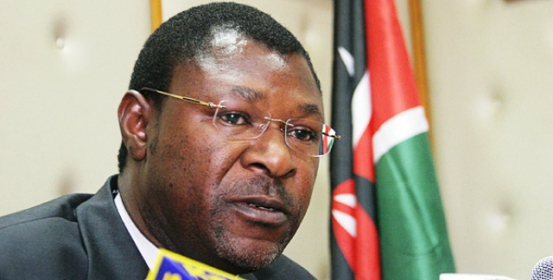×
The Standard e-Paper
Smart Minds Choose Us

The country’s political terrain is facing a major shake-up with a confidential dossier revealing a plan to arrest and charge Ford Kenya leader Moses Wetang’ula with several electoral offences.
The dossier, secretly submitted to Director of Public Prosecutions Keriako Tobiko, surfaced just a day after Wetang’ula announced the grand plan by his Coalition for Reforms and Democracy (CORD) to impeach President Uhuru Kenyatta for alleged constitutional violations.